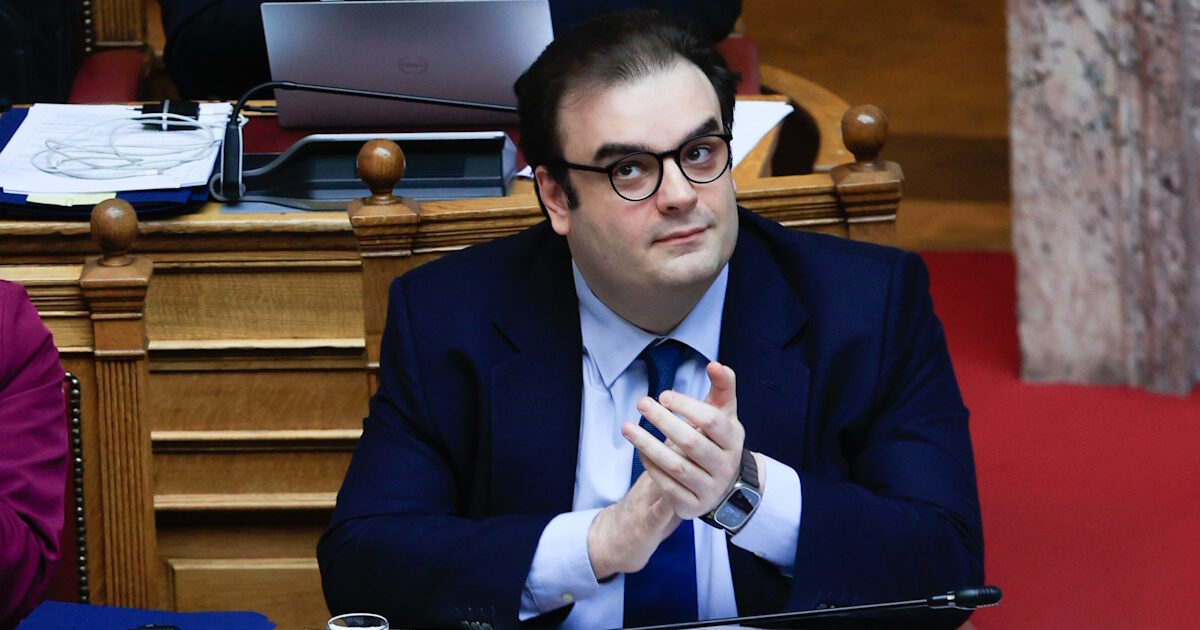The intention to extend the clawback investment By 2030 today (14.5.2025) heralded the Minister of National Economy and Finance, Kyriakos Pierrakakisspeaking at the 6th Congress “Ygeiamou”
Mr Pierrakakis stressed that the part of the investment clawback has already been successful and this is reflected in the creation of 10 factories, 14 research centers and 22 production units. “The industry gave birth to 1.5 billion euros in investment,” he said characteristically, adding: “We intend the investment clawback equivalent to € 75m a year and was essentially funded by the recovery fund, to expand it up to 2030 and support it.”
In addition to this objective, the minister made a second note on the funds available through the state budget. As he specifically said, “one part is the limit of the pharmaceutical expenditure that the state compensates and another piece is essentially the clawback.” “This threshold,” he added, “is increasing organically every year by GDP growth, and in recent years another 100 million euros a year have been added.”
As Mr Pierrakakis emphasized, “in the bill we will bring with the Deputy Minister of Finance, Thanos Petralia, we will expand this increase for 100 million euros a year by 2030”. The provision will be included in a subsequent bill of the Ministry of National Economy and Finance.
On the issue of debt
Responding to the remarks of representatives of the pharmaceutical market, the Minister of National Economy and Finance made it clear that Greek debt is diverged at such a high speed that at the moment we can say that in 2029 Greece will not be the most over -indebted country in the EU. “I challenge you to tell me another European country with this debt profile today,” the minister said.
Concluding his position, the minister said that “based on the budgetary opportunities we will have, based on the degrees of freedom, we will increasingly support any industry we consider to have added value to GDP, export sign, as well as innovation and productivity.” Certainly, this is such a branch, he emphasized by referring to the drug area.
On the issue of duties
The government’s aim is, according to the Minister of National Economy and Finance, to remove all obstacles to the development of the economy and a Win to Win agreement. As Mr Pierrakakis said, referring to US policy and EU negotiations, uncertainty is a much bigger problem than tariffs. “What does the Draghi exhibition say? That in the EU we put obstacles corresponding to duties. In the services, obstacles have been valued that it is like putting an 110% duty on the border from one country to another. In the processing part it is over 40%, it is 45%. So these obstacles must be removed. “
The minister noted that Greek exports to the US are limited compared to the US, it is 4.8% of our total exports to about 1% of GDP. “So, even in an environment of higher duties, I would tell you that it would obviously concern us, but even more the secondary effects would be of concern to us,” he added.
Referring to the health digitization track, the minister used the electronic prescription as an example, which he described as “one of the most ambitious programs that the country has access to a huge wealth of data”.
In the context of the debate, the minister talked about the trend of Brain Regain, finding the arrival of a trained scientific potential, necessary in all parts of the economic chain, and described Greece as a “country of talent generator”.
He stressed, however, that demographics is one of the biggest issues that the country will face in the coming years, with an impact on every policy area that concerns us.
The debate on “highlighting the developmental role of the drug in the economy” was co -ordinated by the director of the first issue, Babis Koutras. Mr. Pierrakakis’ interlocutors were Mr. Lambrina Barbetakis, President of Pharma Innovation Forum (PIF), Olympios Papadimitriou, President of the Association of Pharmaceutical Companies (SFEE) and Theodoros Tryfon, President of the Panhellenic Union of Pharmaceuticals (PEF).
